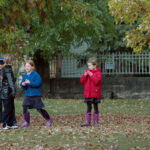Home »

Blaming HCTF for state of B.C. wildlife unfair and misguided
Letter to the Editor
I write regarding Carmen Purdy’s letter of January 26, 2020.
Mr. Purdy is correct in his assertion that many wildlife populations in B.C. are in steep decline and that habitat loss and degradation are the primary cause.
Populations of game species and other wildlife must have access to abundant and suitable habitat in order to survive and thrive. Most habitats occur on the more than 90% of the landscape that is public land, managed by the province of B.C. for a huge range of economic activities—logging, mining, grazing and others—all of which affect wildlife habitat and populations.
Positive outcomes for wildlife are entirely possible when their habitat requirements are designed, up front, into land management plans, prescriptions, and operations. Failure to integrate wildlife into land management leads to undesirable outcomes such as the current demise of caribou, moose, and myriad other species. I share Mr. Purdy’s dismay in witnessing the declines in B.C.’s world-class wildlife heritage.
Mr. Purdy is, however, entirely wrong to lay this problem at the door of the Habitat Conservation Trust Foundation (HCTF).
A few facts: Since 2007 the HCTF has operated as a non-profit organization independent of the provincial government. HCTF is not intended to be the guarantor of B.C.’s wildlife heritage; that is the role and responsibility of the provincial government. The surcharge fund managed by the HCTF was established, on the suggestion of B.C.’s hunters, anglers, trappers and guides, to enable investments above and beyond the “base work” carried out by government to secure and manage B.C.’s wildlife resources.
For nearly four decades the HCTF has augmented the work of government and NGOs in advancing the conservation and management of wildlife. For example, we have provided funding to acquire and manage critical habitat properties at Premier Ridge, the Hoodoos, Sheep Mountain, Bummers Flats, Bull River, Columbia Lake, Wigwam Flats and many others. The HCTF continues its record of investment in the Kootenays around prescribed fire and a wide range of on-the-ground ecosystem restoration projects.
The HCTF receives most of its wildlife funding from the approximately two per cent of British Columbians who hunt, trap and guide. About 20 cents of every dollar spent on a licence is a conservation surcharge that goes to the HCTF, with the rest going to government. The annual total received by HCTF from hunting, trapping and guiding surcharges is less than $3 million. The Province of B.C. is a big place, almost a million square kilometres in area.
So do the math; $3 million spread across such a large and increasingly industrialized land base is, at best, a very modest investment. But it’s more important to consider the purpose for which B.C.’s hunters, anglers, trappers, and guides worked so hard to establish this funding source nearly 40 years ago: to augment, not replace, the core work required to sustain B.C.’s wildlife, fish, and habitats.
Regarding accountability, the HCTF has a strong record of transparency and continues to be an open book when it comes to public inquiries and communicating our activities. We are required by law to publish audited financial statements annually, and every year we publish the list of all projects approved for funding. This information and more, is publicly available on our website. One final fact: the HCTF Board consists of dedicated volunteers from the community of anglers, hunters, trappers and guides of B.C.
Every year they review hundreds of proposals and make decisions on which projects are funded and where. The process is competitive, with the Board selecting technically-sound proposals having the greatest potential to make a positive difference for B.C.’s fish, wildlife and their habitats.
Given these facts, to lay the blame for the current state of wildlife populations at the door of the HCTF is unfair and misguided in the extreme.
If you have any further questions about HCTF’s work or funding streams please feel free to contact us at [email protected] or by calling (250) 940-9780.
Winifred B. Kessler,
Chair of the Board of Directors, Habitat Conservation Trust Foundation







